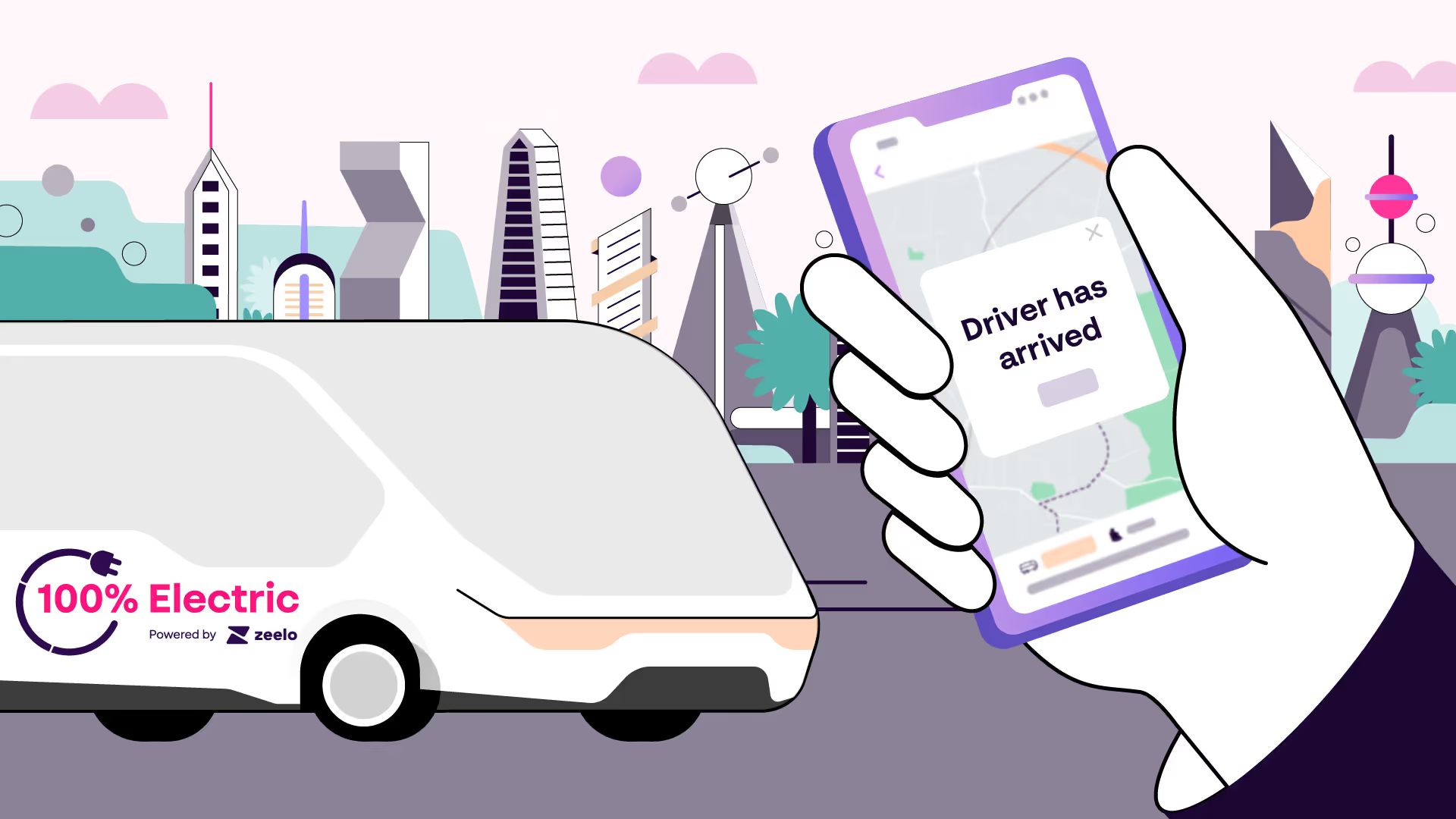What Makes An Electric Staff Shuttle Greener Than Driving A Car?
.avif)
When considering how to reduce your carbon footprint, public transportation is often the first option that comes to mind. And when it comes to public transportation, electric buses are at the forefront of green travel. But why? What sets them apart from other forms of mass transit, and why are they so much better for the environment than driving a car? Let's dive into what makes an electric bus greener than driving a car. From emissions to energy efficiency, read on to explore the benefits of taking an electric commuter shuttle instead of getting behind the wheel of a car.
The Environmental Impact Of Electric Buses
Electric buses are becoming increasingly popular as a more environmentally friendly option for public transportation. But just how much of an impact do they really have on the environment?
It's well established that electric buses emit far less greenhouse gas emissions than traditional petrol or diesel buses. In fact, they produce zero emissions themselves – all of their power comes from batteries which can be easily recharged using renewable energy sources.

In recent years, there's been a significant shift in the transportation sector towards more sustainable and eco-friendly options. Among these, electric staff shuttles have emerged as a greener solution to traditional Internal Combustion Engine (ICE) vehicles. This blog explores the benefits of electric staff shuttles and why they are becoming a preferred choice for businesses and organizations.
Environmental Benefits
Reduced Carbon Footprint: Electric vehicles (EVs), including staff shuttles, produce zero emissions at the point of use. This is a stark contrast to ICE vehicles, which emit carbon dioxide and other harmful pollutants. By switching to electric staff shuttles, organizations can significantly reduce their carbon footprint.
Incorporating electric staff shuttles into an organization's transportation fleet can significantly contribute to reducing Scope 3 emissions, which encompass indirect greenhouse gas emissions from activities such as business travel, employee commuting, and the transportation of goods.
Energy Efficiency: EVs are generally more energy-efficient than their ICE counterparts. Electric motors convert over 77% of the electrical energy from the grid to power at the wheels, compared to about 12-30% for ICE vehicles.
Economic Advantages
Lower Operational Costs: The cost of electricity to power an EV is considerably less than the cost of fuel for ICE vehicles. Moreover, EVs have fewer moving parts, which translates into lower maintenance costs.
Incentives and Subsidies: Many governments offer incentives for purchasing electric vehicles, including tax credits, rebates, and grants. These incentives make the switch to electric staff shuttles more economically viable for businesses.
Health and Community Impact
Improved Air Quality: By eliminating tailpipe emissions, electric staff shuttles contribute to better air quality, which is crucial in urban areas where air pollution is a major concern.
Noise Reduction: Electric vehicles are much quieter than ICE vehicles, leading to reduced noise pollution. This is especially beneficial in residential areas and around hospitals and schools.
Challenges and Solutions
Range Anxiety: One of the major concerns with EVs is range anxiety – the fear that a vehicle has insufficient range to reach its destination. However, with advancements in battery technology and an expanding network of charging stations, this concern is rapidly diminishing.
Initial Investment: The upfront cost of electric vehicles can be higher than ICE vehicles. However, the total cost of ownership, when factoring in fuel and maintenance savings, is often lower for EVs in the long run.
Zeelo, an innovative player in the transportation sector, is taking bold steps towards achieving net zero emissions. Recognizing the importance of environmental sustainability, Zeelo is not just transforming its operations but also actively encouraging its operator partners to embrace electric vehicles (EVs). This strategy is pivotal in Zeelo's journey towards sustainability, especially given its asset-light business model.

As an asset-light company, Zeelo doesn't own the vehicles it uses for transportation services. Instead, it partners with existing vehicle operators. This model offers a unique opportunity for Zeelo to influence and accelerate the adoption of EVs across its network. By advocating for EVs, Zeelo is effectively multiplying its environmental impact beyond its direct operations.
Zeelo's commitment to net zero involves a concerted effort to encourage its operator partners to transition to electric fleets. This involves:
Educational Initiatives: Zeelo provides information and resources to its partners about the benefits and logistics of operating electric shuttles. This includes data on cost savings, environmental impact, and operational efficiency.
Financial Incentives: Understanding the financial challenges of transitioning to EVs, Zeelo is exploring ways to support its partners,by providing the contracts needed to support an EV purchase, partnerships with EV manufacturers, or innovative financing models.
Showcasing Demand: By highlighting the increasing demand from client organizations for EV contracts, Zeelo motivates its partners to adopt electric fleets. This demand-driven approach ensures that the transition aligns with market needs.
Zeelo's shift towards electric shuttles is not just an internal goal but also a response to the growing demand from client organizations keen on reducing their environmental impact. By offering more EV contracts, Zeelo supports these organizations in achieving their sustainability objectives, including the reduction of Scope 3 emissions.
Zeelo's commitment to achieving net zero through encouraging the uptake of EVs among its operator partners is a testament to the company's innovative approach to sustainability. This strategy not only aligns with global environmental goals but also sets a new standard in the transportation industry, proving that even asset-light companies can make a substantial impact in the fight against climate change.
We help companies and schools achieve their transportation program goals
Corporate shuttles


Warehouse/Distribution


Schools & Universities


Become a partner


Want to know how we can help you?











.avif)
.avif)